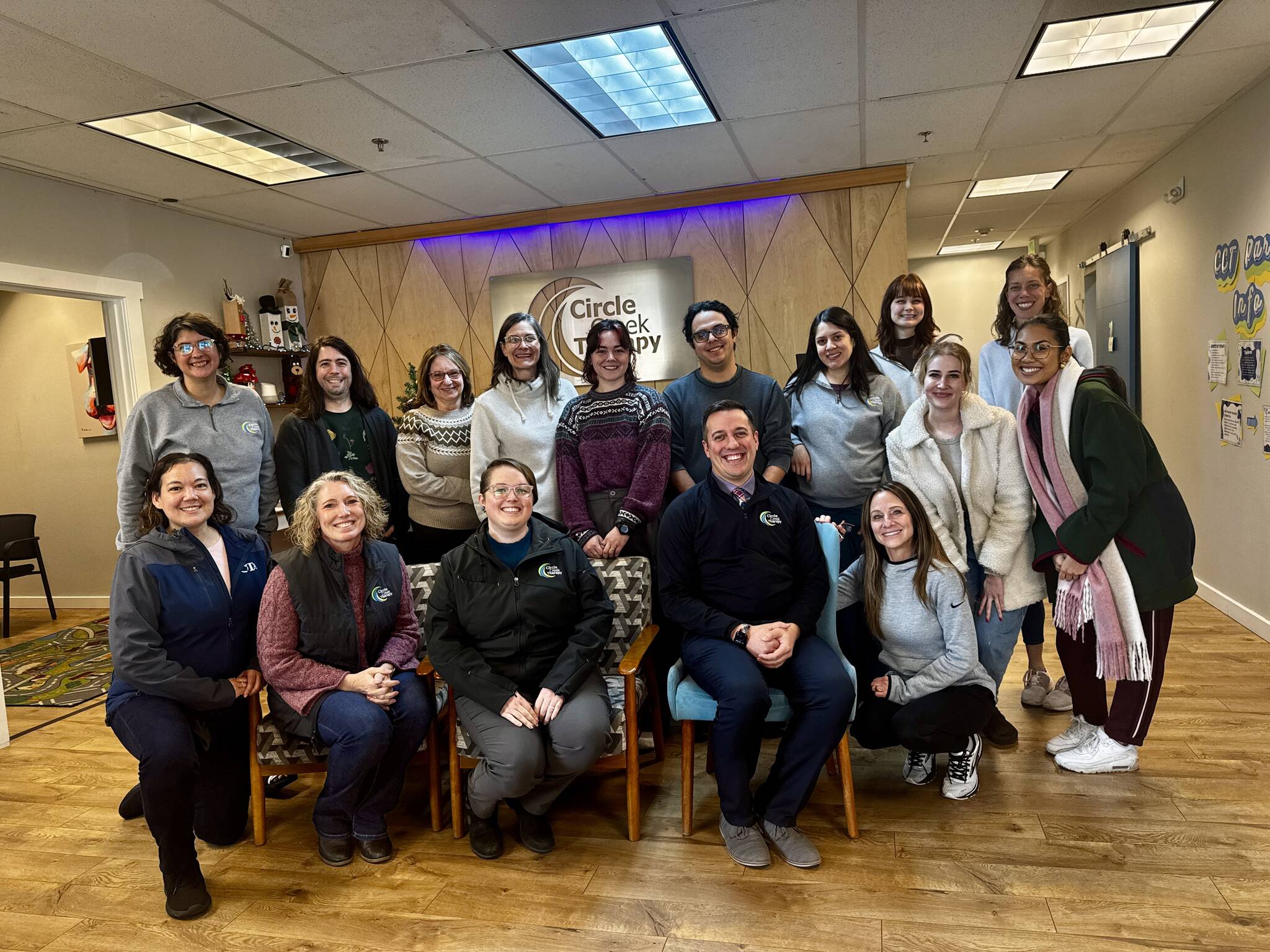When Stephen and Courtni Doherty’s son, Noah, was 13 months old, he suffered his first epileptic seizure.
And he began showing signs of developmental delays: unsteady balance, fine motor skills, lack of progress in speaking.
“As parents, watching our little baby go through something so indescribable came with mixed emotions of fear, confusion and heartbreak. From that day forward, we knew life would be a little bit more challenging for our family,” said Stephen Doherty.
By the time Noah turned 2, his parents knew their child would need specialized, consistent, skilled therapies to get around in the world.
They found their lifeline at Circle Creek Therapy, a small family-owned clinic in Auburn. Now, Noah receives physical therapy, occupational therapy and speech therapy once or twice a week.
Without those therapies, Stephen said, Noah’s ability to live a normal life would be severely impacted.
“The therapists at Circle Creek Therapy have done more than just provide care. They’ve offered us hope. They’ve given Noah tools to reach milestones that at one point we weren’t sure that he would achieve,” Stephen said.
The Dohertys are fortunate: they own the family-owned business. Courtni Doherty, a speech pathologist, founded it in 2015 at 110 2nd S.t SW #110 as a speech-therapy clinic. Over the last nine years, the clinic has grown to offer physical therapy, occupational therapy, and recently, behavioral health and counseling.
Its mission, however, has not changed: to provide compassionate, high-quality therapy to children and families in Auburn.
The Dohertys want to stay in Auburn. They want to keep serving the community, and they want the families that rely on them to celebrate milestones, just as they have done with Noah.
“These are not just appointments for us,” said Stephen, the clinic’s chief administrative officer. “They are opportunities for us, opportunities for Noah to learn to walk steadily, hold a crayon, express himself and connect with the world around him through words. Every small step, whether stringing words together or climbing stairs without stumbling, is a moment of victory.”
Obstacles to growth
The clinic has run out of room. So, to continue in Auburn and to grow, the clinic has to add employees to meet increased demand. And, to make that happen, the business has to move to a larger building.
But their plans to relocate have hit a significant obstacle, as the husband-wife team told the Auburn City Council on Dec. 2 at City Hall. It’s an obstacle that could force them out of Auburn. That is, the city’s assessment of a hefty traffic-impact fee on the business as part of its relocation. That fee, originally $144,000, has been negotiated down to $72,594.06.
The clinic’s owners are grateful for that. But they maintain that the fee is still a killer for their small clinic, and they hope to recontest it with the city.
“While we have received this reduction, it remains a cost that would be unaffordable for a small business like ours, and it threatens our ability to continue providing the essential services that our community relies on,” Courtni told the council.
On Tuesday morning (Dec. 3), the couple met with Mayor Nancy Backus.
“We have a unique business model that doesn’t fit in the traffic engineers’ manuals,” Stephen explained by phone after the meeting. “We’ve not been able to get across to the city’s traffic engineer how unique it is, and why we will have a lower traffic impact. Experts we have talked to tell us the city is being very aggressive regarding this fee. Right now, we’re optimistic.”
Backus shared that optimism in a statement the city released released late Tuesday.
“City staff have been working with the Dohertys on their project for some time,” Backus said. “I am optimistic that with enhanced communication between the city and the Dohertys, we can find solutions to move forward.”
Another issue prompting the move is that health care today is largely administrative, forcing providers to spend untold hours on paperwork and forms — time they would rather spend with patients.
“We hope to show the city that there are some administrative functions that go along with running a health care clinic. We have to have a billing office, so we are creating two new full-time positions to bring our billing service back in house,” Stephen said.
Their hope, if all goes well, is to host a grand opening in February in the building on Auburn Way North that long ago served the Elks Club, and has since housed numerous businesses, including health clubs.
Before they finished their addresses to the council the previous evening, the couple said as follows:
“As you make decisions that impact our city and its resources, I urge you to consider the importance of supporting small businesses like Circle Creek. They are not just another clinic. They are a cornerstone for families who face challenges every single day,” Stephen said. “For families like ours, these therapies mean the difference between surviving and thriving.”
“As parents,” Courtni said, “we understand the challenges parents face when accessing quality care: insurance limitations, months-long wait lists, limited services, and long hours in the car. Which is why we’ve dedicated ourselves to helping children and their families in our community.”
In response to the financial challenge, Circle Creek Therapy has created a fundraising page to give the community a way to help it overcome this hurdle: www.givebutter.com/circlecreektherapy.


